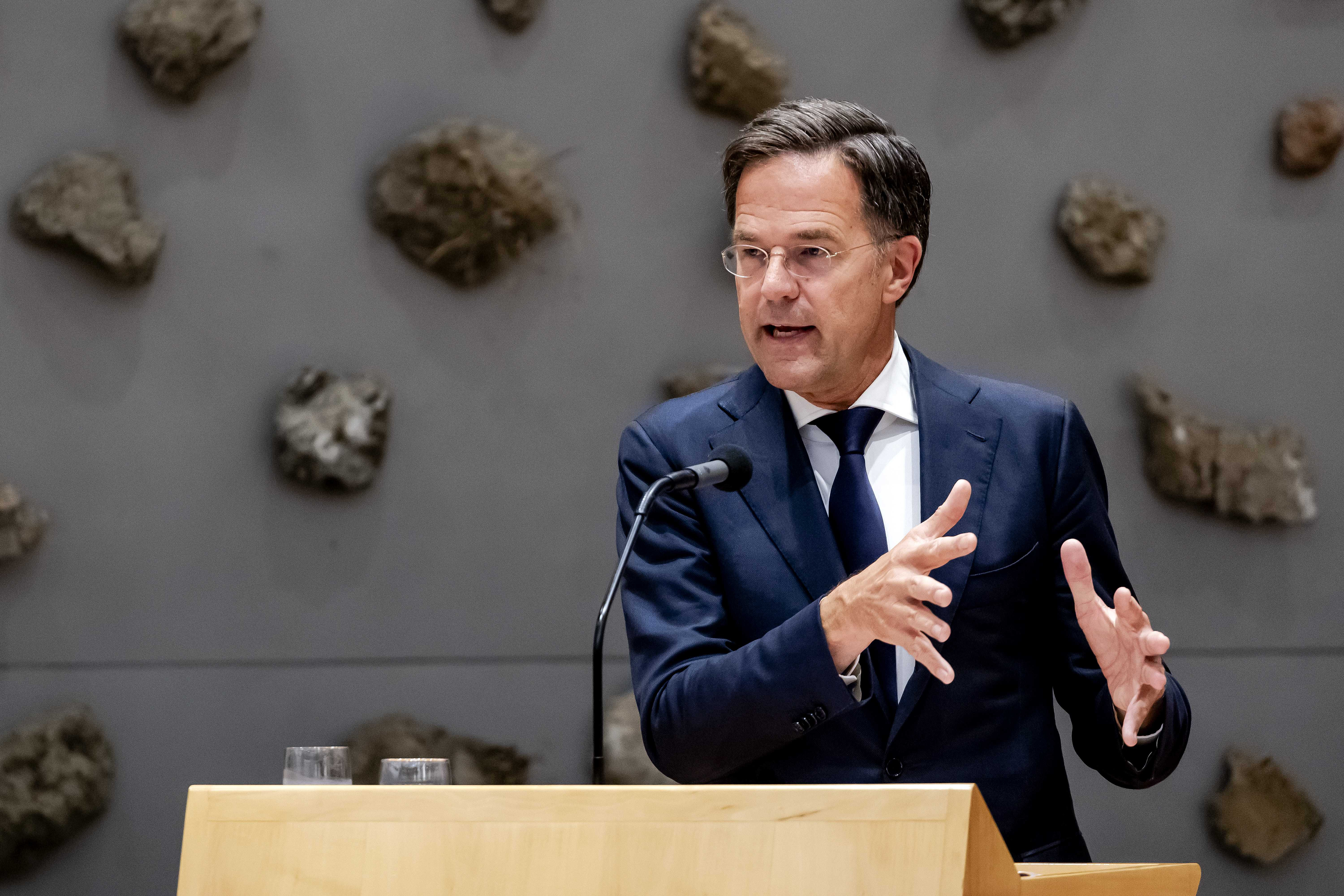Netherlands
Dutch government falls, Rutte resigns

Prime Minister Mark Rutte
© picture alliance / ANP | Robin van LonkhuijsenThe Dutch political landscape is in turmoil. On Friday, the Dutch government led by Prime Minister Mark Rutte (VVD) resigned. After months of negotiations, the coalition could not agree on measures to curb immigration. On top of that, Rutte announced that he will not run for office again.
The Dutch political landscape is in turmoil, as the government resigned over a disagreement on how to tackle immigration flows. After months of negotiations, the four-party coalition of the Liberals (VVD), the Social Liberals (D66), the Christian Democrats (CDA) and the small Christian Union party (CU) on Friday evening announced the end of the government. This means new elections and, until then, the government will continue in a caretaker capacity. Four-time Prime Minister Mark Rutte will not be on the ballot, as he announced on Monday that he will not run for office again.
Ideological differences
The governing coalition was unstable from the start. After ten months of coalition talks, the longest ever formation period in the Netherlands, the four parties from the previous coalition unexpectedly continued in the same constellation. However, many of the issues that remained unresolved under the previous government were still on the table. These included the cutting of nitrogen-related pollution, housing shortages, support for the victims of earthquakes in Groningen and of a childcare benefits scandal, and migration. As the coalition parties had vastly different ideological outlooks on these issues, it was clear from the onset that it would be difficult to find consensus.
Migration proposal
In the end, the issue with migration proved to be one step too far. After a scandal with overcrowded asylum centres and internal pressure to bring down migration numbers, the VVD and CDA both pushed for months to reform the asylum system. They proposed to re-introduce a system with two classes of asylum — a permanent one for those fleeing for political reasons and a temporary one for those escaping conflicts. At the same time, the number of family members accompanying those fleeing from war would be limited to 200 a month.
Coalition partners D66 and particularly the Christian Union strongly opposed the limit on family reunification. Whereas the concerns of D66 mainly focussed on the viability of the new system (which was one of the reasons for the previous reform), the objections of the Christian Union were of a more principled nature. As a “family party”, it believes in wide possibilities for family reunion and it could not accept a hard cap on the number of people coming along.
After months of negotiations, the cabinet talks broke down last week. On Wednesday, Rutte tried to force through an agreement by imposing a deadline to solve the issue before the weekend. After three days of crisis negotiations, tensions came to a head on Friday. At the press conference following the last round of negotiations, Rutte stated that “the differences have become insurmountable” and announced the resignation of his cabinet.
What’s next?
Following the fall of the coalition, it will now continue to work in a caretaker capacity until a new government is formed. This will happen after new elections, which are expected to take place in November. In the meantime, the caretaker government cannot decide on new policies, which will leaving many of the ongoing crises unattended.
In a dramatic turn of events, Rutte on Monday also announced that he would not run for re-election. After 13 years at the helm, this marks the end of an era. He was the longest serving prime minister in Dutch history and the second longest-serving head of government in the entire EU. Having led four governments, Rutte had a reputation as a seasoned crisis manager. However, the migration agreement proved to be one too many and signalled the political end of his long career.
Speculation about Rutte’s next steps and his successor, both as VVD leader and as the Prime Minister, is rife. As none of the other parties had foreseen new elections, nearly all major parties face leadership issues. At the Christian Democrats, three likely candidates for the leadership position declined, while the Social Democrats and Greens are in the middle of a discussion to merge their parties. It is rumoured that European Commission Executive Vice President Frans Timmermans may consider returning to the Netherlands to lead their list, but this race is far from won.
More certain is that the Netherlands is heading into a new political era. With the populist Farmer-Citizen Movement (BBB) leading in the polls in a fragmented political landscape, a big shake up seems to be on the cards. For the liberals this can be a blessing or a curse, as both VVD and D66 were in an uncomfortable position in the previous coalition. However, a scenario in which they both compete for the top position seems unlikely, for now.

